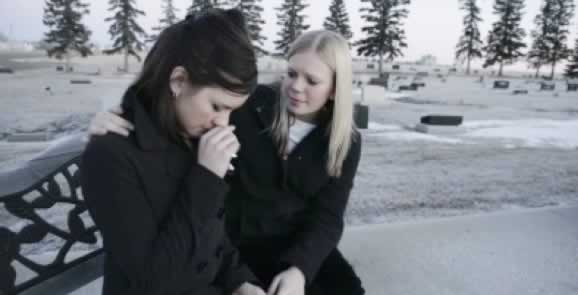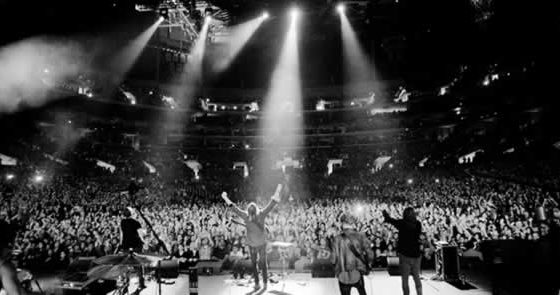If they answered certain basic questions about humanity, the concentration camps, and most notably Hitler’s Holocaust against the Jews, prompted desperate questions about God. The question, “Where is God when it hurts?” almost defined the Jewish experience during the Holocaust. How could he sit by, silent, and watch the immolation of six million of his chosen people? How could he let evil rule with such apparent sovereignty?
During the 1970s a man named Reeve Robert Brenner surveyed one thousand survivors of the Holocaust, inquiring especially about their religious faith. How had the experience of the Holocaust affected their beliefs about God? Somewhat astonishingly, almost half claimed that the Holocaust had no influence whatever on their beliefs about God. But the other half told a different story. Of the total number surveyed, eleven percent said they had rejected all belief in the existence of God as a direct result of their experience. After the war, they never regained faith. Analyzing their detailed responses, Brenner noted that their professed atheism seemed less a matter of theological belief and more an emotional reaction, an expression of deep hurt and anger against God for abandoning them.
Yet Brenner also discovered that a smaller number, about five percent of his overall sample, actually changed from atheists into believers because of the Holocaust. After living through such abominations, they simply had nowhere else to turn.
Within a two-month period I read two poignant accounts by survivors of the Holocaust. These two authors, Elie Wiesel and Corrie ten Boom, typify the radically different responses of faith under such conditions. Their books, both bestsellers, are among the most readable works in the vast Holocaust literature.
Night, by Elie Wiesel, affected me as much as any book I have ever read. In a terse style, his sentences tightly packed with images, Wiesel describes the world in which he spent his teenage years. All the Jews in his village were first herded together into a ghetto, then stripped of possessions and loaded into cattle cars. Almost a third of them died in transit to the death camps.
The first night Wiesel’s train pulled up at Birkenbau, coils of ominous black smoke billowed from a massive oven, and for the first time in his life Elie smelled the scent of burning human flesh: “Never shall I forget that night, seven times cursed and seven times sealed. Never shall I forget that smoke. Never shall I forget the little faces of the children, whose bodies I saw turned into wreaths of smoke beneath a silent blue sky. Never shall I forget that nocturnal silence which deprived me, for all eternity, of the desire to live. Never shall I forget those moments which murdered my God and my soul and turned my dreams to dust. Never shall I forget these things, even if I am condemned to live as long as God Himself. Never.”
Wiesel saw his mother, a younger sister, and eventually all his family forced into an extermination oven. He saw babies pitchforked, children hanged, prisoners murdered by their cellmates over a piece of bread. Elie himself escaped death only on account of an administrative error. His books drum out different variations on the same story of senseless, hopeless tragedy.
I sometimes feel an aching desire to remain with Wiesel, overwhelmed by human tragedy. After undergoing such monstrosity, how can anyone begin living again? Can words like hope, happiness, and joy regain meaning? How can anyone speak of the character-building value of suffering?
After reading Night and several other books by Elie Wiesel, I read The Hiding Place, by Corrie ten Boom. The setting was by then familiar. Although not a Jew herself, Corrie was arrested in Holland for sheltering Jews and was transported to the death camps in Germany. She too felt the sting of a whip, saw prisoners disappear into the ovens, and watched her sister die. She too sensed the defilement of all virtue in a world of sovereign evil. Her books ask the same questions as Wiesel’s, and sometimes her anger blazes against God.
But there is another element in The Hiding Place, the element of hope and victory. Woven throughout her story are the threads of small miracles, along with Bible studies, hymn-sings, and numerous acts of compassion and sacrifice. Throughout their ordeal, the two sisters continued to trust in a God who watched over them in love. As Corrie said, “However deep the pit, God’s love is deeper still.”
I must confess that, although my sympathies lie entirely with Corrie’s view of life and I believe in her God of love, I had to fight thinking her book shallow compared to Wiesel’s. Something dark and sonorous was tugging inside me, pulling me away from hope, toward despair.
Wiesel himself expressed his doubt as an act of liberation. “I was the accuser, and God the accused. My eyes were open and I was alone — terribly alone in a world without God and without man. Without love or mercy. I have ceased to be anything but ashes, yet I felt myself to be stronger than the Almighty, to whom my life had been tied for so long.” A force within urged me to stand proud beside Elie Wiesel as God’s accuser and to throw off the confining shackles of belief.
One thing alone keeps me from standing as God’s accuser. My reason for continuing to believe, ironically, is best expressed in a scene described by Wiesel himself, an episode that took place while he, at age fifteen, was imprisoned at Buna.
A cache of arms had been discovered at the Buna camp. They belonged to a Dutchman, who was immediately shipped away to Auschwitz. But the Dutchman also had a pipel, a young boy who served him, and the guards began torturing the young boy. The pipel had a refined and beautiful face that the camp had not yet ruined — the face, said Wiesel, “of a sad little angel.”
When the pipel refused to cooperate with his interrogators, the SS sentenced him to death, along with two other prisoners who had been caught with arms.
“The head of the camp read the verdict. All eyes were on the child. He was lividly pale, almost calm, biting his lips. The gallows threw its shadow over him.
“The three victims mounted together onto the chairs. The three necks were placed at the same moment within the nooses.
“?Long live liberty!’ cried the two adults.
“But the child was silent.
“?Where is God? Where is He?’ someone behind me asked.
“At a sign from the head of the camp, the three chairs tipped over.
“Total silence throughout the camp. On the horizon, the sun was setting.
“?Bare your heads!’ yelled the head of the camp. His voice was raucous. We were weeping.
“?Cover your heads!’
“Then the march past began. The two adults were no longer alive. Their tongues hung swollen, blue-tinged. But the third rope was still moving; being so light, the child was still alive….
“For more than half an hour he stayed there, struggling between life and death, dying in slow agony under our eyes. And we had to look him full in the face. He was still alive when I passed in front of him. His tongue was still red, his eyes not yet glazed.
“Behind me, I heard the same man asking: ?Where is God now?’
“And I heard a voice within me answer him, ?Where is He? Here He is — He is hanging here on this gallows….'”
Wiesel lost his faith in God at that concentration camp. For him, God literally hung to death on the gallows, never to be resurrected. But in fact the image that Wiesel evokes so powerfully contains within it the answer to his question. Where was God? The voice within Elie Wiesel spoke truth: in a way, God did hang beside the young pipel. God did not exempt even himself from human suffering. He too hung on a gallows, at Calvary, and that alone is what keeps me believing in a God of love.
God does not, in the comfortable surroundings of heaven, turn a deaf ear to the sounds of suffering on this groaning planet. He joined us, choosing to live among an oppressed people — Wiesel’s own race — in circumstances of poverty and great affliction. He too was an innocent victim of cruel, senseless torture. At that moment of black despair, the Son of God cried out, much like the believers in the camps, “God, why have you forsaken me?”
Jesus, the Son of God on earth, embodied all that I have been trying to say about pain. Like Job, an innocent sufferer who preceded him, he did not receive an answer to the questions of cause: “Why? … Why?” he called out from the cross, and heard nothing but the silence of God. Even so, he responded with faithfulness, turning his attention to the good that his suffering could produce: “… for the joy set before him [Christ] endured the cross” (Hebrews 12:2). What joy? The transformation, or redemption, of humanity.
The Gospel writers stress that Jesus’ suffering was not a matter of impotence; he could have called on a legion of angels. Somehow he had to go through it for fallen creation to be redeemed. God took the Great Pain of his own Son’s death and used it to absorb into himself all the minor pains of earth. Suffering was the cost to God of forgiveness. Human suffering remains meaningless and barren unless we have some assurance that God is sympathetic to our pain, and can somehow heal that pain. In Jesus, we have that assurance.
From Where Is God When It Hurts? by Philip Yancey
Copyright © 2006 by Phillip Yancey, published by Zondervan, used with permission.











